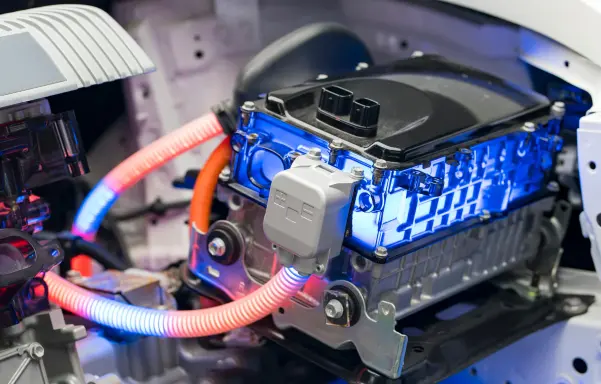European Battery Regulation to Come in 2023
The European Council recently published the final agreed text of the Battery Regulation. This will now go forward to the European Parliament for a final vote before coming into force. This Battery Regulation provides a horizontal legislative framework, which would establish rules for manufacturers, distributors, remanufacturers & companies who repurpose batteries. This regulation covers all type of large capacity batteries, including EV Batteries.
FIGIEFA believes that battery repair and maintenance could open interesting new business opportunities for independent operators, including workshops. Batteries constitute a major cost component of EVs, and battery related services could constitute a significant portion of the future business for aftermarket operators. Battery related services could include replacing the vehicle’s original battery or alternatively repairing the original battery with replacement battery packs or other constituent elements of the battery. Remanufacturing, repurposing and recycling of batteries will also provide new business opportunities.
The battery regulation provides aftermarket operators with rights to access the necessary information for remanufacturing of batteries from the battery manufacturers. It also recognizes the role of independent operators in repairing batteries but does not include specific measures to comprehensively address this. The regulation also prescribes some additional responsibilities for operators who place the batteries on the market. This would include responsibilities for independent distributors who deal in remanufactured batteries or who introduce batteries as a spare part, including requirement to ensure compliance via inspections/tests when a battery repair process modifies the safety parameters. The battery regulation also introduces new concepts like battery passports, electronic exchange systems, State of Health (SoH) etc.
While battery regulation is welcome, on its own it will not be sufficient to address the needs of independent operators in our sector. To perform battery repair, independent operators require to capability to diagnose and identify issues associated with the vehicle batteries, including independently calculating the state of health of the battery, based on data available in the battery management system. It should be possible for independent operators to remove the battery and to replace its constituent elements (battery modules, battery management system, exchange cooling system or the battery junction box) in a safe and secure manner, as part of the repair process. Batteries also need to be designed for repairability. While the battery regulation includes guidelines around some of these needs, concrete requirements are not present. However, the regulation does provide some additional scope for developing additional standards to facilitate repair of batteries and this is welcome. We believe that additional sector relevant provisions for the automotive market should be included under Type approval regulation, as a complement to this battery regulation. The Battery regulation itself is however welcome as a first step in addressing aftermarket operators’ needs on EV Battery repair and maintenance.

